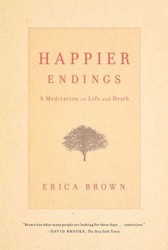Earlier this week, Dr. Erica Brown asked, “What are the Three Weeks, anyway?”, and wrote about learning to mourn. Her new book, In the Narrow Places, is now available.
 Jewish law is based generally on the assumption that our emotions follow our actions. If we act charitably, we will become, over time, more compassionate human beings. We don’t wait for a moment of empathy to hit before we obligate ourselves to give. Yet we are commanded when it comes to certain emotions: we are supposed to love God, supposed to refrain from hate towards others and feel reverence for our parents.
Jewish law is based generally on the assumption that our emotions follow our actions. If we act charitably, we will become, over time, more compassionate human beings. We don’t wait for a moment of empathy to hit before we obligate ourselves to give. Yet we are commanded when it comes to certain emotions: we are supposed to love God, supposed to refrain from hate towards others and feel reverence for our parents.
During the Three Weeks, the summer stretch of time that is marked by two fasts commemorating the destruction of the Temples and any other persecution of Jews in history, we are obligated to mourn. Our mourning consists of many behaviors designed to minimize our sense of joy. But if you look carefully at the Shulkhan Arukh, the sixteenth century code of Jewish law written by Rabi Joseph Karo, you notice a small but stunning appeal to the emotions.
In addition to the Three Weeks as a calendar marking, there are a set of laws that we are supposed to observe to remind us of the loss of our holy Temples. We break a glass at a Jewish wedding and some have the custom of putting an ash mark on the forehead of the groom. In other words, our happiest moments are tarnished – if just a little bit – because we realize their incompleteness without our ancient spiritual center. These practices are still common today.
Less common is the idea that whenever a woman wears her full set of jewelry, she should leave out one piece. Whenever we set our tables for a holiday feast, we leave one place setting empty and whenever we build a home, we leave a space free of plaster near our front door. All of these practices share one common theme: emptiness.
It is near impossible to mourn something we have never experienced. The closest, perhaps most honest response to loss is to leave a space empty that should not be filled. This approach has characterized many memorials to loss in recent years. The Oklahoma bombings have been commemorated with a field of empty chairs. The 9/11 Pentagon plane crash has been marked in a similar way, with empty benches for the number of people who died in that terrorist attack.
Right at the end of the code of Jewish law that presents these practices, we read that no one should experience complete happiness in this life. This goes far beyond table settings and to the heart of what loss means. If you ask anyone who has lost a very close friend, a child or a spouse, they will tell you that although – over time – they live “normally,” they never experience complete happiness because a piece of themselves is always missing. That, I believe, is what our sages of old wanted us to experience – a loss of a collective spirit and connection to the divine that we can only approximate but never fully understand, that we carry with us always.
Dr. Erica Brown has been blogging all week for the Jewish Book Council and MyJewishLearning. Her new book, In the Narrow Places, is now available, and she will be tweeting during the Three Weeks at @DrEricaBrown.
Dr. Erica Brown is a writer and educator who lectures widely on subjects of Jewish interest. She is scholar-in-residence for the Jewish Federation of Greater Washington, DC and a consultant to other Jewish organizations. Dr. Brown is the author of In the Narrow Places, Confronting Scandal, Spiritual Boredom and Inspired Jewish Leadership, and co-author of The Case for Jewish Peoplehood. Her “Weekly Jewish Wisdom” column has appeared regularly in The Washington Post. More at www.leadingwithmeaning.com.



